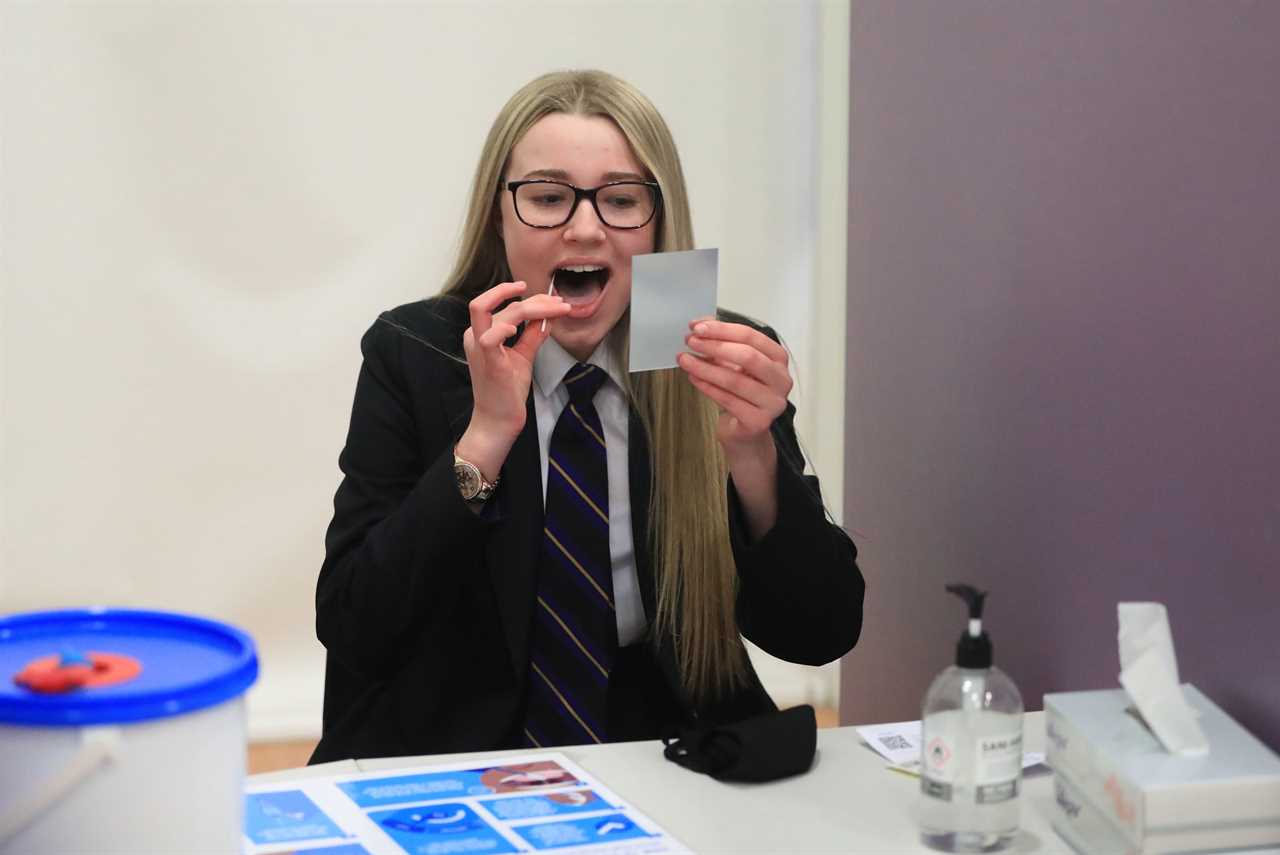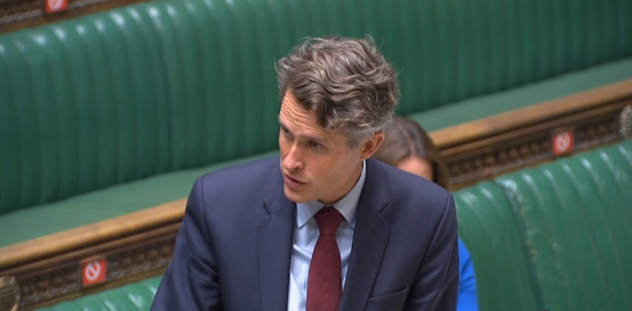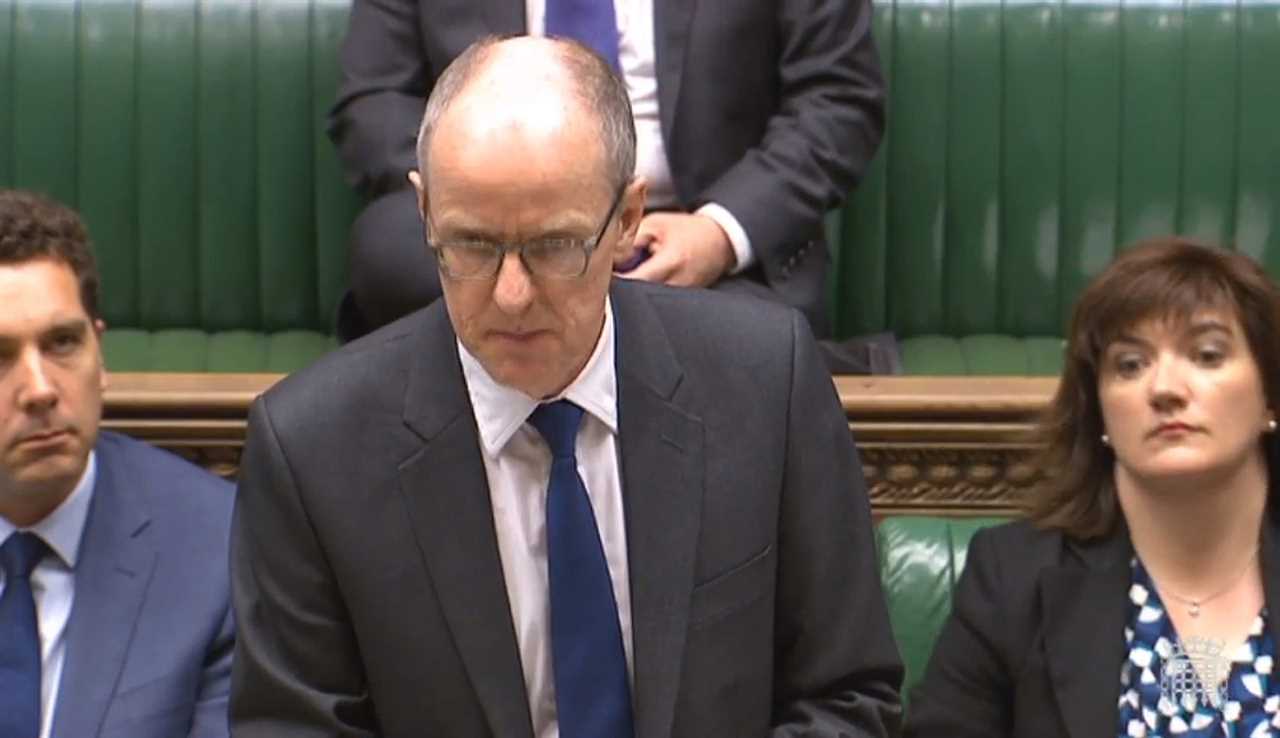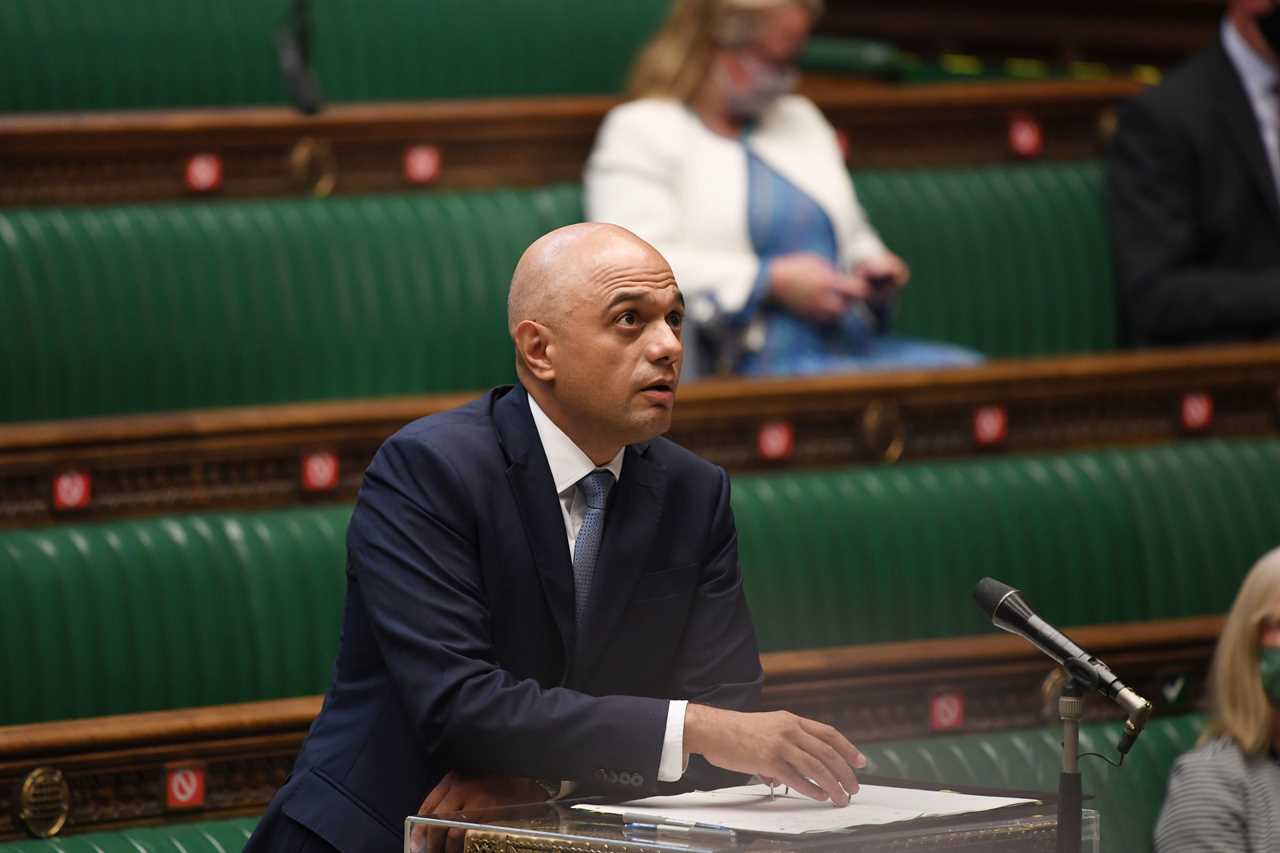COVID quarantine rules that mean schools have to send home whole classes WILL be scrapped, Gavin Williamson confirmed today.
The Education Secretary said he wants to swap these bubbles with testing “as quickly as possible”- suggesting it could be from July 19 Freedom Day.


Current restrictions require kids to self-isolate when a fellow pupil tests positive – proving a headache for parents forced to arrange childcare.
Mr Williamson told MPs this afternoon: “What I want to see is these restrictions including bubbles removed as quickly as possible along with wider restrictions in society.
“I do not think it is acceptable that children should face greater restrictions over and above those of wider society especially since they have given up so much to keep older generations safe over the last 18 months.
“Further steps will be taken to reduce the number of children who have to self-isolate including looking at the outcomes of a daily contact testing trial as we consider a new model for keeping children in schools and colleges.
“We constantly assess all available data and we expect to be able to confirm plans to lift restrictions and bubbles as part of Step 4. Once that decision has been made we will issue guidance immediately to schools.”
They are set to be replaced with a new system of daily testing and contact tracing from September to crack down on the spread of infections.
At the moment about 250,000 children are out of class and having to quarantine for 10 days. That’s 3% of the school population.
That figure has leapt from 1% in the space of a week amid concerns about the rapid spread of the Indian variant amongst the young.
Department of Education chiefs have written to headteachers asking them to prepare for the fresh rules to come into force this Autumn.
A spokesman said: “We are provisionally asking secondary schools and colleges to prepare to offer on-site testing when students return for the new academic year, so that schools are ready in case it is needed to keep as many children as possible in face-to-face education.
“We will provide further details about the approach to protective measures and test and trace in education from September in due course.”
A trial of the new system which is being carried out across secondary schools is set to finish tomorrow.

Schools minister Nick Gibb said a decision will be announced before the announcement on whether Freedom Day can go ahead on July 19.
He previously said: “We are conducting trials of daily contact testing as a possible alternative to self-isolation.
“What matters also is that we keep the school safe and if you go around our schools, you will see a raft of measures to reduce the infection rates within schools.
“There’s extra hygiene, there’s staggered breaks, we keep children in bubbles, and there’s extra ventilation in classrooms to minimise the risk of transmission.”
Mr Gibb said evidence suggests most children catch Covid outside school rather than in the classroom.
That means a daily test and trace regime would be able to stop those kids coming into lessons and giving it to fellow students.
And those pupils who have been pinged because of a classmate would be able to take a daily test to clear them for school.
He said cases “tend to correlate with the level of infections in the actual local community rather than what’s happening in the schools”.

New health secretary Sajid Javid is also pushing for the draconian self-isolation rules to be dropped.
He has ordered officials to look again at the policy in a bid to keep millions in school.
Mr Javid said: “This is a very important issue and something I’ve focused on, on day one of the job.
“That is why I’ve asked for fresh advice on this.”
The new Children’s Commissioner for England also called for bubble arrangements and self-isolation to end soon.
Dame Rachel de Souza said there is an urgent need for children to get back to normal as lockdown has been a “real trauma” for many.
She told the Telegraph: “Children are really troubled, and it’s right across the board.
“They have done a huge amount for us, I mean they really were the least at risk of this.
“They’ve given up 19 weeks of their education, they’ve had all this anxiety and concern and exams cancelled – they’ve taken a big burden for us.”
She has run a new survey of more than 550,000 kids called The Big Ask to gauge how they’re coping with lockdown.
It shows mental health was the biggest concern for 20% of respondents, a figure that rose to 40% for those aged 14-17.
Official figures today showed another rise in infections, with almost 23,000 lab-confirmed cases – the highest daily rise since January 30.






